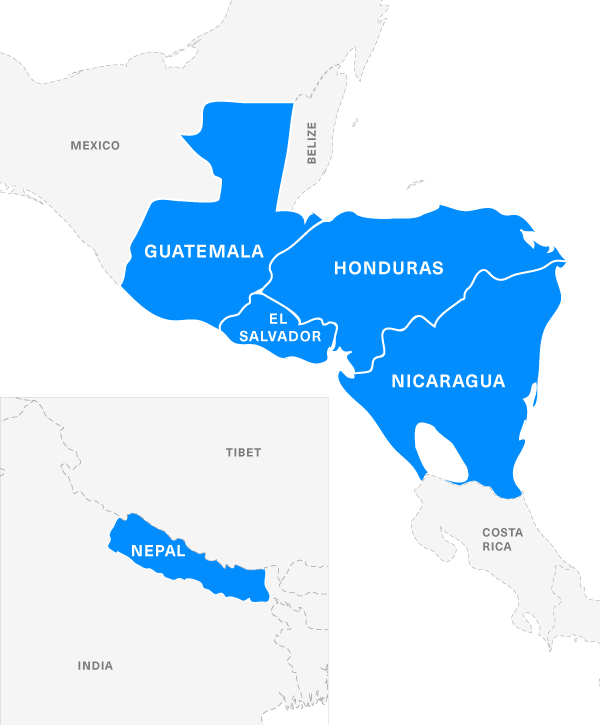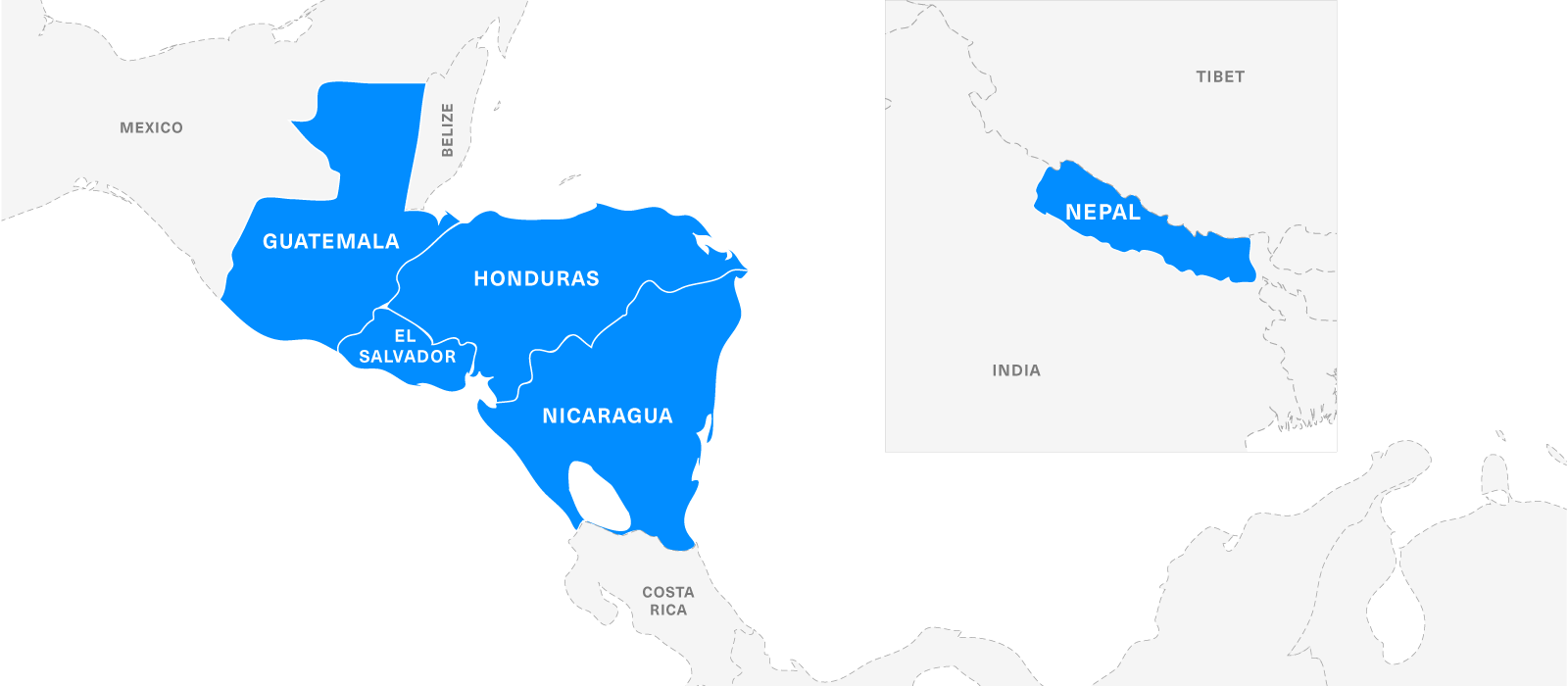Guatemala | Climate and Humanitarian Crises
Like El Salvador, Honduras, and Nicaragua, Guatemala is in the “Dry Corridor”—facing great risk of environmental disaster. Historically, irregular floodings and severe droughts have created extreme hardships for the regions’ inhabitants. Droughts were a pivotal factor driving large groups of families to relocate to the U.S. between 2018 and 2019. Since 2020, the effects of climate change have compounded the already volatile weather conditions.
Hurricanes Eta and Iota were among 30 named storms and 13 hurricanes during the 2020 Atlantic hurricane season—the most active season ever recorded. Most recently, Tropical Storm Julia in 2022 strengthened into a Category 1 hurricane causing 59,571 people to be evacuated, 1,557 houses had severe damage, 1,137 roads and 222 bridges were affected, and 20 roads and 49 bridges were destroyed. The hurricane claimed the lives of 28 Guatemalans. Most people are forced to leave their farms because they can no longer feed their families. In 2022, natural disasters damaged 30,000 homes, affected 325 schools, destroyed 20 highways and 70 bridges. Despite facing the same climate disasters as its Central American neighbors, Guatemala has never received a TPS designation—even after the country requested one in 2005, 2008, 2010, 2013, 2018, and again in 2020 following the deadly duo hurricanes of Eta and Iota.
Extreme weather has also affected food supplies. Between March to May 2022, over 3.9 million people experienced acute levels of food insecurity. Today, Guatemala ranks among Latin America and the Caribbean region’s highest levels of poverty and inequality. 50% of the general population lives in poverty: the World Food Programme approximates that 66% of civilians live on less than $2 USD per day. Approximately 46.5% of Guatemalan children, and 80% of indigenous Guatemalan children, suffer from chronic malnutrition. In fact, Guatemala ranks first in Latin America and sixth in the world for cases of child malnutrition. In 2022, UNICEF reported that 44% of Guatemalan children have seen their growth stunted due to malnourishment.
Under these conditions, Guatemalans cannot return home safely. As Guatemala stands at the brink of political, climate, and poverty crises, its nationals in the United States urgently need TPS protections. The Biden administration must designate the country for TPS to ensure Guatemalans in the U.S. do not become entrapped in the spiraling violence and humanitarian crises that await them if they are deported.




